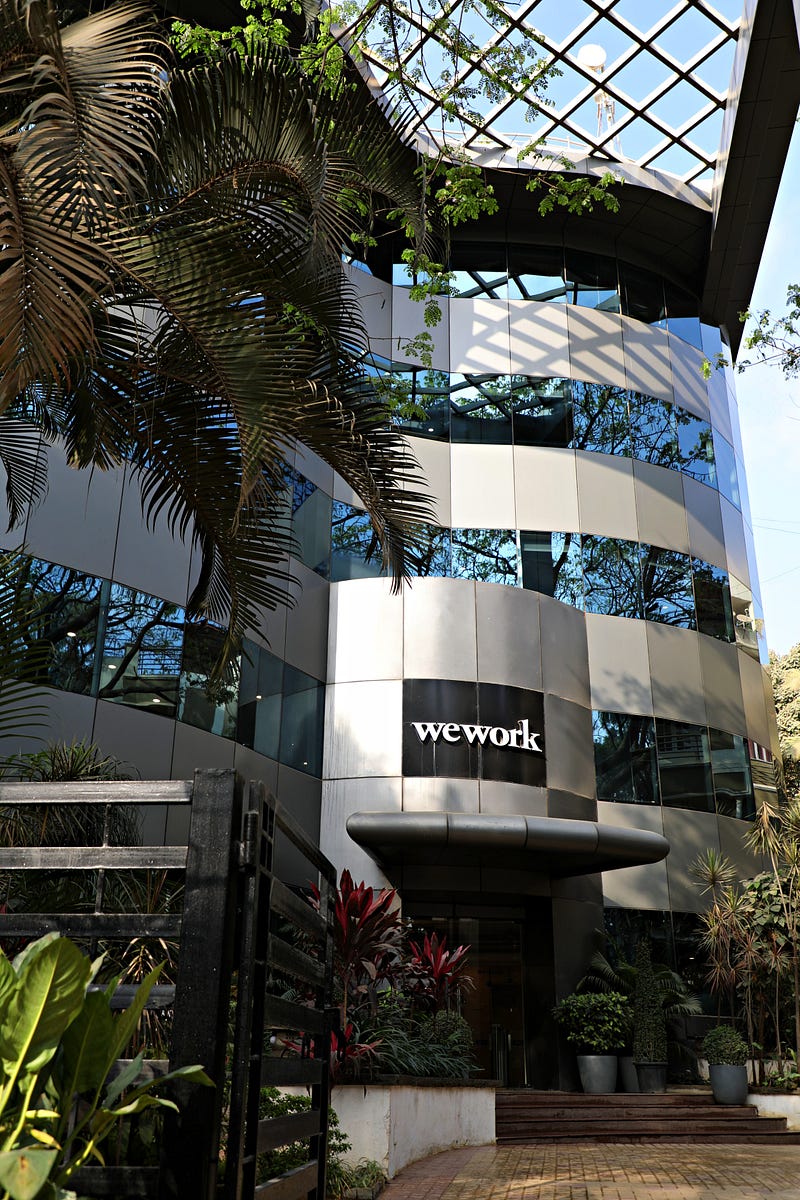WeWork's Domino Dance: Shaking Up Cities and Office Spaces
So, let's talk about the WeWork rollercoaster – it's hitting the bankruptcy scene, and the impact is spreading like ripples in your favorite coffee mug. In the ever-changing world of business and real estate, WeWork filing for bankruptcy is like adding a shot of unpredictability to your morning brew.
The Prelude of WeWork's Bankruptcy
Imagine this: offices across America are sitting empty, and WeWork, once the office cool kid, is now facing some serious financial blues. CNN Business, through Nathaniel Meyersohn's lens, paints a vivid picture of the uncertainties looming over WeWork's 600 locations in major cities.
The Real Estate Quandary
Now, the big question: What happens to the offices that had WeWork's vibe? Commercial landlords, who once eagerly rented out chunks of their buildings to this co-working giant, are now on shaky ground. The future of this real estate maestro hangs in the balance, and the consequences could extend far beyond its walls.
Economic Strain on Commercial Landlords
It's not just a hit to the co-working industry; it's a full-blown financial test for those landlords who bet big on flexible office spaces. The rush to embrace this new way of working has backfired, leaving property owners in a bit of a debt haze. As WeWork pulls the plug on some US leases, throw in a whopping $270 billion in commercial real estate loans in 2023 – complexity level: expert.
The Painful Aftermath
Losing WeWork isn't just about co-working; it's like spilling your coffee on a Monday morning – messy. The predictions are in: more vacant offices, potential rent dips, and landlords possibly defaulting on loans or mortgages. It's a domino effect that could send shockwaves through the banking system, affecting city tax revenues. Moody's economist Ermengarde Jabir paints a gloomy picture of unexpected vacancies, adding a layer of uncertainty to an already troubled market.
Predictions for Smaller Banks
Now, let's dive into the crystal ball and predict how smaller banks holding landlords' debt might get smacked. Tightened loans for home and business owners are on the horizon, stirring up investor anxiety about the overall health of the financial system. Remember the recent collapses of Silicon Valley Bank and Signature Bank? Yeah, it's like sipping a strong espresso – leaves a lasting impression.
Revenue Impact on Municipal Governments
Municipal governments, relying on commercial property taxes like you rely on that morning cup, now face potential budget cuts. In places like New York City, where office properties bring in a chunk of tax revenue, WeWork's bankruptcy isn't just a real estate headache; it's a fiscal challenge for the very cities it once thrived in.
Evaluating the Office Market Trouble
Stijn Van Nieuwerburgh, the real estate guru at Columbia Business School, sheds light on the severity of the situation. While no single tenant can flip the office market like a pancake, WeWork's significant presence makes it a key player. The focus on Class B buildings, especially in New York City, adds a layer of concern about office obsolescence and falling demand.
Potential Paths Forward: Navigating the WeWork Fallout
As WeWork's bankruptcy echoes through offices in New York City, San Francisco, and Boston, it's like navigating a caffeine crash. The concentration of WeWork's occupancies in these cities, coupled with plans to close substantial square footage, paints a challenging future. Landlords, faced with the uphill battle of filling WeWork vacancies, might explore alternative uses or deal with stranded assets until bankruptcy proceedings offer a resolution.
In the face of the WeWork fallout, this article unfolds the framework, giving you predictions, revenue impacts, market troubles, and potential paths forward. It's like taking a sip of your favorite brew – a mix of bitter and sweet, but always an experience. WeWork's bankruptcy serves as a cautionary tale, prompting a reevaluation of the future of office spaces and the broader implications for the economic landscape.
F.A.Q.
Question 1.
Q.: What led to WeWork filing for Chapter 11 bankruptcy?
A.: WeWork filed for Chapter 11 bankruptcy due to financial turmoil, putting the future of this real estate giant in uncertainty. The co-working company decided to terminate some of its US leases, leading to increased financial stress on commercial landlords.
Question 2.
Q.: How does WeWork's bankruptcy impact commercial landlords?
A.: WeWork's bankruptcy adds financial strain to commercial landlords who had rented substantial portions of their office buildings to the co-working giant. The rush to embrace flexible office spaces, once viewed as the future of office life, has soured, leaving property owners grappling with debt.
Question 3.
Q.: What are the potential consequences of WeWork's bankruptcy on the broader real estate market?
A.: WeWork's bankruptcy is predicted to increase vacancies, potentially lowering rent for tenants and prompting landlords to default on loans or mortgages. This domino effect could impact the banking system and lead to budget cuts for municipal governments relying on commercial property taxes.
Question 4.
Q.: Which cities will be most affected by WeWork's bankruptcy?
A.: Offices in New York City, San Francisco, and Boston are expected to be hit hardest by WeWork's bankruptcy. Approximately 42% of WeWork's occupancies are concentrated in these three cities, and the company already has plans to close a significant portion of its footprint in these markets.
Question 5.
Q.: How does WeWork's exposure to Class B buildings contribute to the challenges in the New York City office market?
A.: WeWork's larger exposure to Class B buildings, particularly in New York City, is less than ideal for the office market. Many market participants are concerned about office obsolescence and falling demand in that class of buildings. This situation is exacerbated by the average age of WeWork's Class B buildings being 96 years old, compared to 48 years for Class A buildings.

Comments
Post a Comment